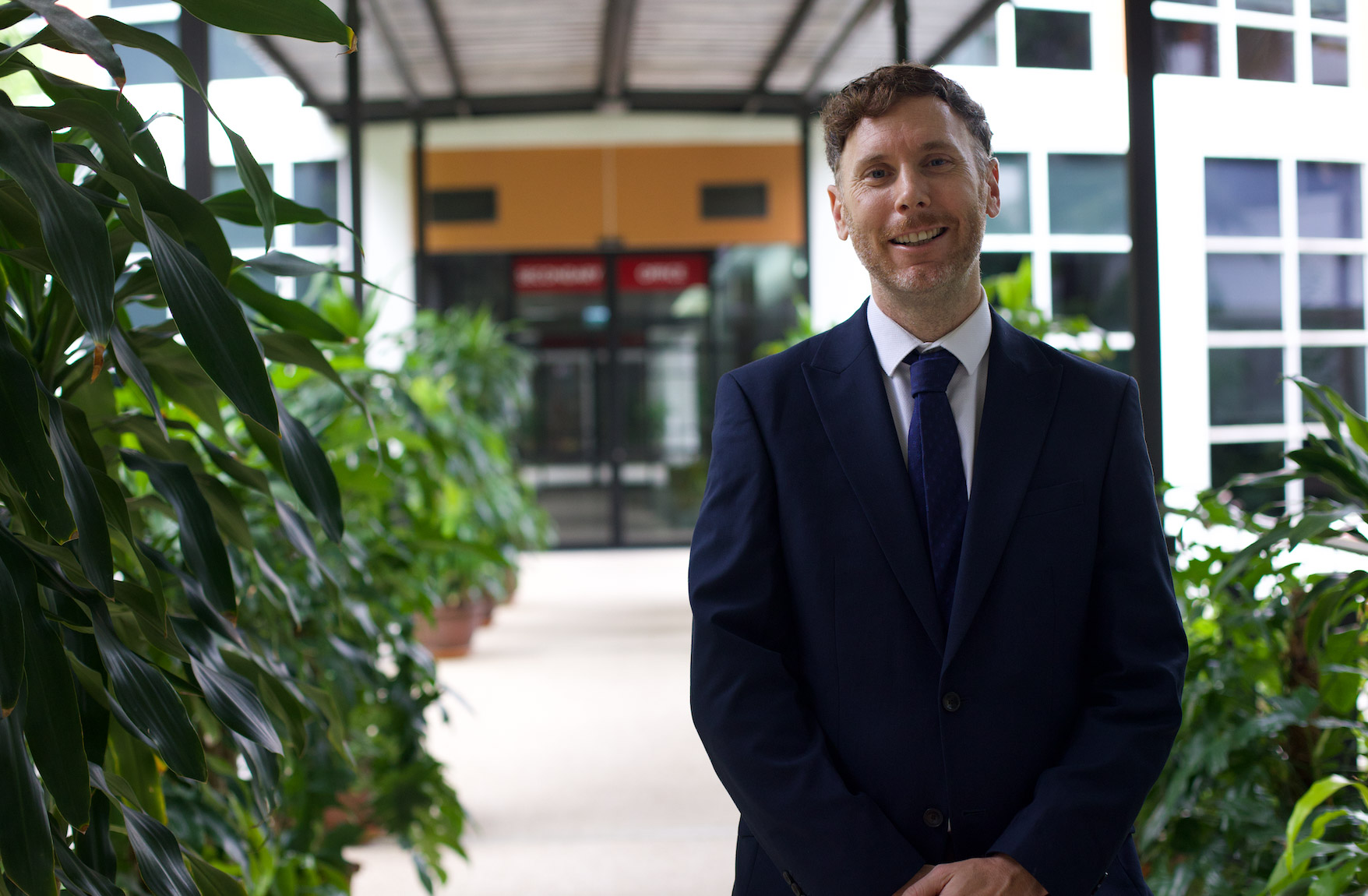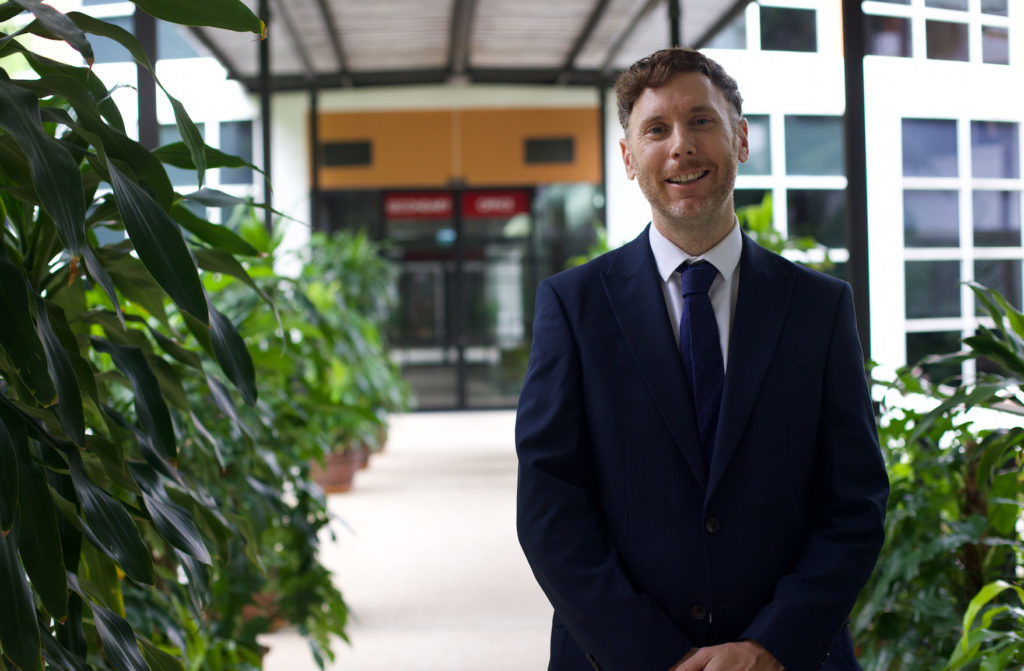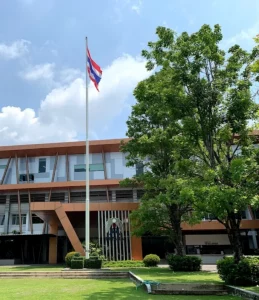
Luke Jones – Secondary Assistant Principal
“I am particularly enthusiastic about the ‘Fab Four’: feedback, autonomy, challenge, and engagement.”
Luke Jones is our new Secondary Assistant Principal for Curriculum and Assessment and a Computing teacher. Prior to Bangkok Patana, Luke was working in Sri Lanka and has experience in Qatar as well.

“I was attracted to Bangkok Patana because the reputation of the school within the international circuit is so strong, and it helped knowing a few members of staff who raved about the quality of the school in terms of facilities, staff and the leadership of the school. Although I had originally planned on going back to Europe, when the opening came up at Bangkok Patana I said ‘I have to apply for this job, it’s a school I have always wanted to be involved in.’ I showed my daughters the website and they were enthusiastic about attending. I knew there was tough competition so I researched the school, and the more I delved into the school, the curriculum and the values, the more I found it was in line with my beliefs and how education should be.”
“My role for now is going to involve absorbing and soaking up a lot of the school culture and seeking the perspectives of the many different stakeholders, understanding what their perspectives are and how they feel about the culture of the school. Understanding these multiple viewpoints allows you to lead the school in the right way, for the context you are in. That being said, I am looking forward to getting to know as many people here as I can.”
“Prior to Bangkok Patana, I was Deputy Head of the British School in Colombo, Sri Lanka. I loved the countryside in Sri Lanka. Before that I was in Doha, Qatar for five years. I really enjoyed living there, there is so much to do even though you are on a tiny peninsula in the desert. Before Qatar, I worked in Boston, really a fantastic place with so many different universities. Living in America was such a special experience; when you live somewhere, you can really understand a culture from a different perspective, including the people and how they view things and their traditions.”
“The intention for your learning and the direction the learning is going in is incredibly important for the journey across a sequence of lessons. I am particularly enthusiastic about what I call the ‘Fab Four’: feedback, autonomy, challenge, and engagement. The Fab Four is a lens which we as teachers can look through when planning and delivering learning. Feedback focuses on the assessment, mentoring and voice of students, what is going well and most essentially, what can be improved. It is also important to model for the students what high performance looks like, so they reflect on it pursue it. Autonomy is allowing students to be responsible for their own learning – I believe we should see learning through the eyes of our students, helping them to become their own teachers. This allows them to develop real independence and resilience. Challenge is a growth mindset – how challenged are the students, how can we as teachers support students as much as possible? And finally, how engaged are the students? Are they in the flow, is it fun? When you see outstanding performance in the classroom by students it is because they are in that flow, the late Ken Robinson talks about this extensively in his book The Element.”
“I like to listen to and play music. In fact, I used to be a serious singer-songwriter and recorded in the studio, but I haven’t had a lot of time recently. I love reading and listening to podcasts on car journeys and when exercising. I also like to play lots of different sports, including: tennis, football, squash and golf.”






